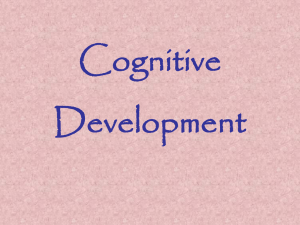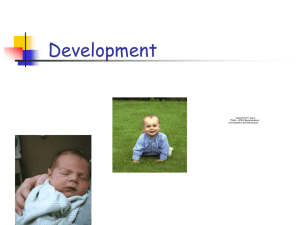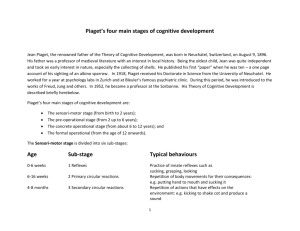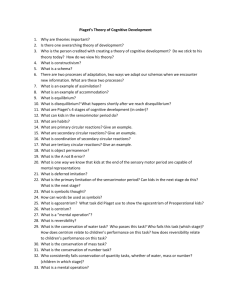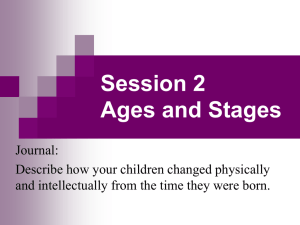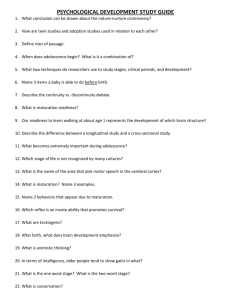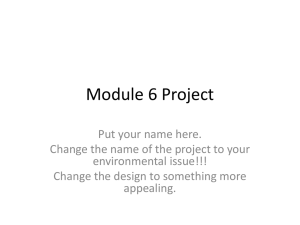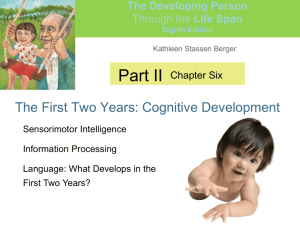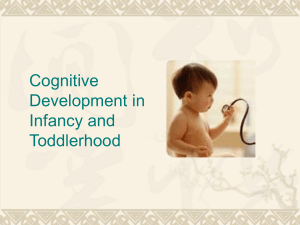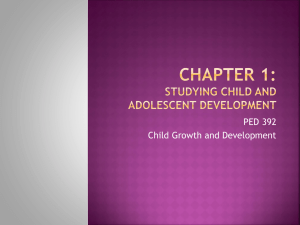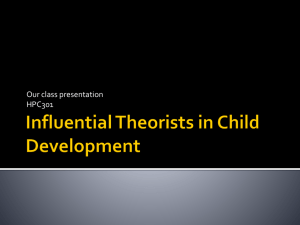Cognitive Development
advertisement
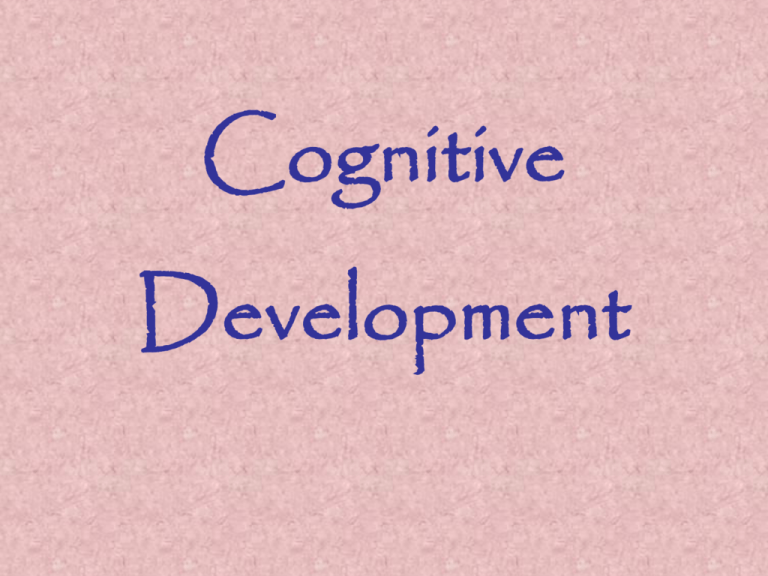
Cognitive Development Jean Piaget Cognitive Development Theory Kinds of Knowledge • physical knowledge • logico-mathematical knowledge • social knowledge Constructivism •children are active learners, not passive observers •organize their knowledge into schemes •schemes change through –assimilation –accommodation Stages of Cognitive Development •children’s schemes change over time •cognition develops in stages, not gradually •each stage builds on accomplishments of prior stage Sensori-motor Stage • ages birth – 2 years old • infant uses senses and motor abilities to explore • first explorations are innate reflexes • goal-directed behaviors • object permanence Substages of Sensori-motor Stage • 1st: (birth - 1 mo) – innate reflexes, – circular reactions • 2nd: (1-4 mo) – primary circular reactions • 3rd: (4-8 mo) – secondary circular Substages of Sensori-motor Stage • 4th: (8-12 mo) – goal directed behavior – object permanence • 5th: (12-18 mo) – tertiary circular • 6th: (18-24 mo) – Symbolic representation Preoperational Stage •ages 2-7 •child uses mental representations of objects •play moves from using real objects to more complex play •child’s thinking is perceptionbound, egocentric, irreversible, centrated, intuitive, animistic Concrete operations •ages 7-11 •child uses logical operations •ability to –conserve –think flexibly –seriate –classify with more than 1 attribute and with hierarchical thinking Conservation Tasks Formal operations • ages 12 and up • child uses logical operations in a systematic fashion • can think abstractly • hypothetico-deductive thinking • propositional thinking Contributions of Piaget's Theories to Current Practice •focus on active, hands-on learning •play is important •sensitivity to a child's current level of understanding •acceptance of individual differences Criticisms of Piaget's Ideas •research methods •Underestimated/overestimated the abilities of children •didn't adequately consider the role of culture and experience in children’s undertaking of his tasks •stage theory
